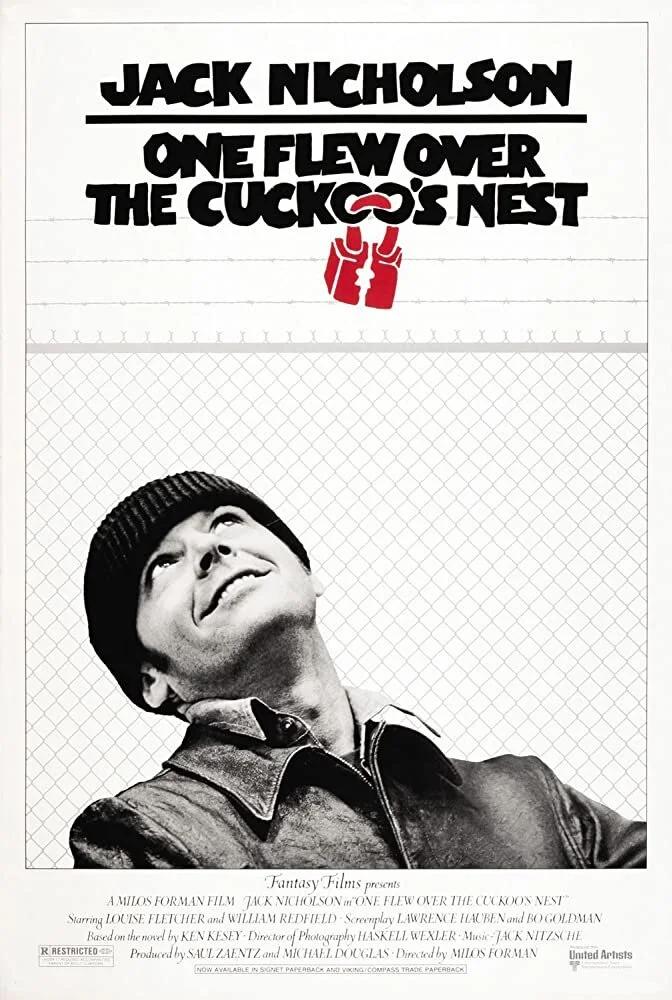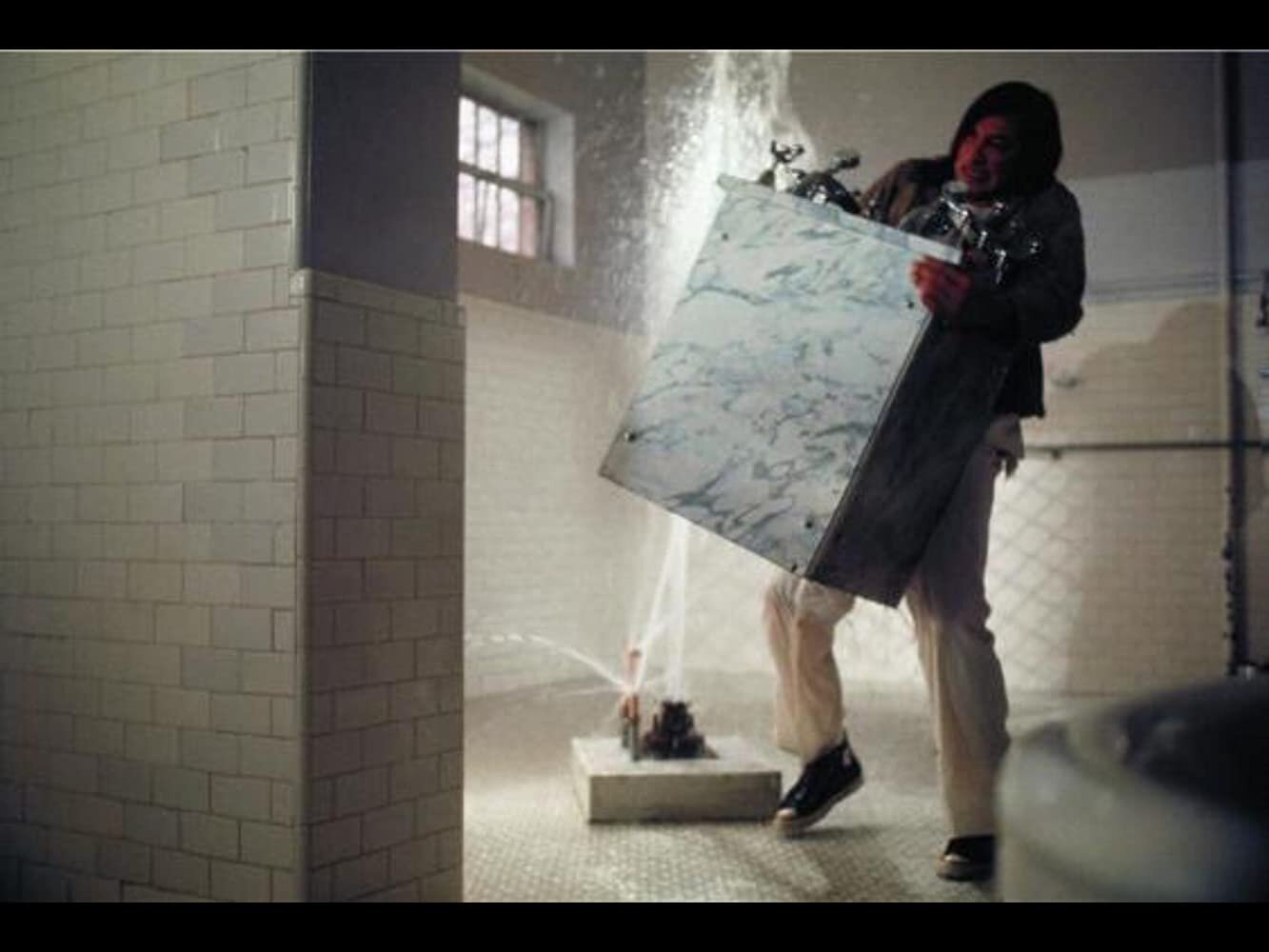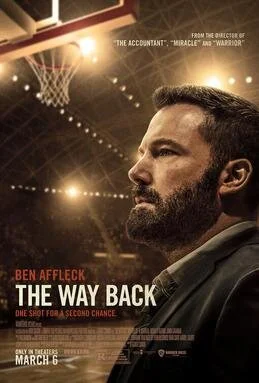America Is Living In A Cuckoo's Nest
The person who cares about you on the deepest level can arrive in the most unlikely form imaginable. R.P. McMurphy is by no means a savior. He's a violent, womanizing, statutory rapist who wouldn't even be given a single chance within the eyes of a civilized society. Perhaps rightfully so. Despite everyone telling you how much they care for your well being, it might be McMurphy in all his vulgar peculiarities that will be your best friend through the hardest of times.
During moments of difficulty, I turn to "One Flew Over The Cuckoos Nest" not for comfort but therapy. Milos Forman's adaptation of Ken Kesey's novel is one of the most magnificent depictions of mental health ever put on screen, if not the most honest representation of mental instability adapted into a dramatic work I have laid my eyes upon. I know this because I have struggled with my psychological wellness my entire life. I have been diagnosed with ADHD, Asperger's Syndrome, Depression, and Anxiety. Confessing this so openly was something I have withheld due to my fear of professional judgment. Society doesn't want to deal with someone with known mental disorders. Such a blunt revelation wins you a one-way ticket to the unemployment line. Now that half the country is unemployed, perhaps it's time for us all to be more honest, more understanding of each other, able to withhold such perception.
Upon first viewing the patients of the film's institution, our initial reaction is to label them as crazy. Avoiding the fabricated syle of a standard Hollywood film, director Milos Forman based the performances of each character on the 1967 Documentary short "Titticut Follies" to capture a cinéma vérité portrait of a real-life mental institute. The entire cast lived inside the Oregon State Hospital as if they were actual patients locked up within the confined walls of insanity. With his enthusiastic lack of care for authority, Jack Nicholson's R.P. McMurphy behaves as a revolutionary leader. Having the freedom of not being officially registered as insane until the observation of his behavior says otherwise, McMurphy begins to turn the foundation into this playground.
During his play, McMurphy subconsciously establishes a bond with the subjects of the facility. When initially toying with them for his amusement, a sense of empathy is triggered in Mac's brain that is never hinted at in the film nor alluded to; it's just something we feel. Allowing the inmates to go fishing, drinking, desperately attempting to turn on the World Series, in the back of R.P.'s mind is an insatiable unbeknownst need to provide everyone the desire to live. Despite all the best efforts of the medical staff, nobody understood the boys like McMurphy did.
A revolutionary is often deeply flawed like ourselves. But he’ll care more about you more than either of you will ever know.
To oppress Murph is Nurse Ratched (Louise Fletcher). Ratched is the embodiment of a healthcare system that does not care for the mentally ill. Ms. Ratched wants to keep everyone in the facility drugged through their "medication time," so she can maintain control of her inmates as if she is a Gawdy figure. The Nurse's grip on her patients is the same as the pharmaceutical company's grip on the American taxpayer. The goal is to keep everyone sick, so they continue to pay out of pocket for medication they can barely afford. While profits are driven up, everyone is reminded that they are not well, making them believe in a system that keeps them financially and emotionally oppressed. Nurse Ratchet's greed admittedly, doubtfully, didn't have this distinct connection in 1975 towards today's problems in 2020. However, when a film is timeless, parallels can be appropriately drawn.
As a movie ages, so does its resonance. The older I get, the more I feel for this picture. Even when a story is not mainly saying what you think you detected, you can still find that specific something for yourself. For instance, beyond the 1975 release of the film, America's mistreatment of the mentally ill has become dramatically accelerated. When Ronald Reagan took office along with Republican control of the Senate, Jimmy Carter's Mental Health Systems act was thrown away. The outcome of discarding Carter's bill resulted in the deinstitutionalization of patients who wound up in living in nursing homes, prisons, underfunded institutionalized facilities that were located in the ghetto that lacked the usage of toilets, and exponential growth in homelessness.
In 1988 it was reported by the National Institute of Mental Health (NIMH) that 120,000 former inmates were still hospitalized, 381,000 resided in nursing homes, between 175,000 and 300,000 occupied in board-and-care dwellings; and in a range between 125,000-300,000 were homeless. Today we see the continued effects of the Reagan administration's mismanagement of the psychologically impaired. The U.S. prison system is filled to the brim with violent criminals who need psychiatric help instead of a trip to solitary confinement. When driving down the streets of any major metropolitan city, the homeless are scattered exponentially around the block, many of which are insane.
In a heartfelt moment that speaks truth to dictatorship, McMurphy discovers that many of the residents of the facility are voluntarily committed. With this revelation, Murph acknowledges to the men that, in fact, they're not crazy. It's the system that made them mad. Being locked up for so long will drive anyone nuts. If someone tells you that there's a particular disorder preventing you from living your life, chances are you'll blindly believe those words until the day you die. Never will you live the life you want to due to the oppression of your mental well being. Take your medicine and continue to see the Doctor. You're not a person in most of their eyes. You're a number, a specific time for an appointment before the clock runs out so the Doc can receive his/her paycheck. In McMurphy's revelation to the inmates, we notice the pain he feels for them.
Harding ( (William Redfield) should forget about his ex-wife and find a new love in his life. Billy (Brad Dourif) is flushing away his youth out of fear for being different due to his stutter. Instead of speeding down the road, chasing girls, or partying, he's stuck living in fear. Rather than being inspired by McMurphy's words, the group therapy sessions engulfs in its usual flames that Nurse Ratched pretends not to enjoy. Keeping the men scared and angry allows her manipulation of them to continue. What the subjects should realize is that they can walk out the door at any given time, but they decide to complain about the unimportant specificities of their prison. Once more, the system wins.
Break free from the system.
Now under quarantine, collectively, we live in a cuckoo's nest, with the emphasis being placed on physical health, mental health is and will continue to be ignored. When speaking to my psychiatrist on the phone two weeks ago, she sent me a bottle of pills that would last me for half a year. I asked her if there were any psychologists she could recommend as I am currently living in a frantic state of fear. She said due to the pandemic nobody would be available. In other words, "take the pills and just get over it." Why didn't she give me the phone number to a therapist I could have called or at least Skyped?
Dismissing me with medication is the blatant carelessness that's increasingly prevalent in our system. The only people I can turn to for help are friends and family, most of which I communicate with online. Unlike the Doctors who didn't care about my issues, my friends have listened to me. Some of which I never thought I'd be speaking to on such a personal level have been the most exceptional support I've had during the COVID-19 outbreak. They ask me how I am. They genuinely listen, and they don't consider sending me to the funny farm when I speak my mind.
When the system that is built not only to protect you not only physically but mentally as well fails you, it takes other people to help you out. McMurphy was the embodiment of freedom. He showed everyone a life that is possible. One that defies its leaders gaining everyone their independence. Now oppressed under our current leaders who are quite literally killing us with a healthcare system that prefers for you to be sick in the head but healthy in the body, we will need each other more than ever.
When the nightmare of the pandemic ends, we must find our own R.P. McMurphy. Despite our flaws, we must discover the strength to empathize with one another so we can change a system that has no care relating to our state of mind. Many people's sanity will completely snap during this indefinite time of isolation. Will it be because we are insane or because we have been voluntarily fearful of the mechanizations designed to keep us down? Like Murph said, "well, you're not. You're not crazy!" Much like Chief Bromden (Will Sampson), who found the will to break himself out, we need to find the leader in ourselves to change a world that doesn't care about how we feel by electing some new managers that fight for our ideals instead of their pocketbooks. America is a mental institution ready to snap. When it does, hopefully, real change will come.




